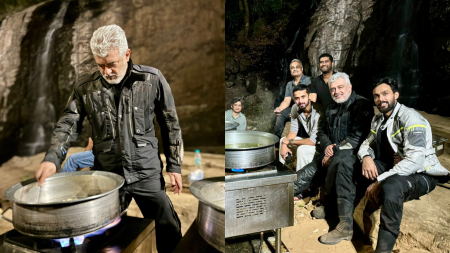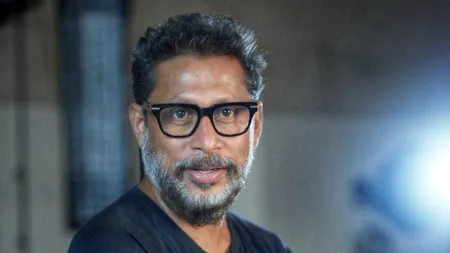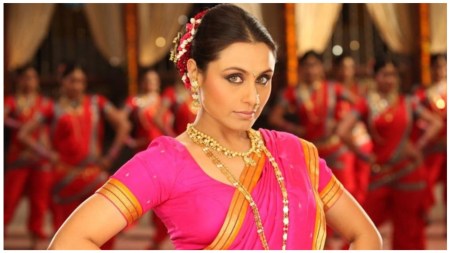Cinematographer-filmmaker Rajiv Menon, who has worked with music maestro AR Rahman on critically acclaimed films like Minsara Kanavu (1997) and Kandukondain Kandukondain (2000), recently opened up about the time Rahman broke the existing template of film music composition by not jamming with lyricists and how it “irritated some lyric writers”.
On being asked to explain how AR Rahman “allowed a tune to happen” and how that irritated song writers, Menon told O2india that Rahman was the one who changed the way music was created in commericial cinema.

He said, “You know what was happening in commercial cinema before is that you went to a hotel and the lyric writer sat and the music director sat and there was a jam and a tune was finished in half a day. Or a tune was done in two hours and then they would do the next tune, so in one session, they used to do six tunes. In some ways, it is very difficult for that tune to be completely different from what’s happening. There is a template in the tune, and you are falling in.”
The filmmaker then revealed how AR Rahman wanted to make music differently and broke the template. He said, “Rahman said, ‘Why should I do that?’ So the first thing he did was he stopped jamming with the lyric writer. He said, ‘I’ll make the tune, give it to you, we’ll write the lyrics and we’ll rephrase after that.’ So this used to irritate the lyric writers to no end. But what he was doing is, he was first trying to make a groove with the rhythm and bass. Once he got the groove, he just lets some thoughts happen. If it works, ok, then try and work on the next groove, let some thoughts flow, works, (now next)…”
Explaining Rahman’s way of making music and disrupting the traditional music scene in India, Menon said that the music composer never liked working under pressure. He shared, “A typical composing session of Rahman would have something like eight grooves. He would say, ‘If you find anything interesting, you say.’ So if you say you find this interesting, then he would edit it, structure a tune and add some fillers and that’s what would go to the lyric writer. So everybody was waiting for this cassette to come (which) can be frustrating sometimes for lyric writers. Lyric writers with great ego were saying, ‘Listen, we have to do,’ but Rahman wasn’t doing it together because he was like, ‘Why should I do that? I am just letting the tune happen, it may happen today, it may happen tomorrow, it may happen day after tomorrow. I don’t want the senior person to come and scream and shout at me. I don’t want to be under pressure. I want the best possible thing that we could come up with.”
Rajiv Menon then said that because AR Rahman changed the tide to make original music his way, it has survived longer than the films. “I think that ‘letting things happen,’ and not finishing it in two hours is why films survive for sometime but music outlives that, becomes part of cultural zeitgeist of our time. I think you need to give a lot more importance to the way music is created rather than seeing it as a functional tool in a film. He was able to make his songs survive beyond his films, beyond the tenure of the film or the relevance of that story,” he concluded.
Click for more updates and latest Bollywood news along with Entertainment updates. Also get latest news and top headlines from India and around the world at The Indian Express.
Disclaimer: The copyright of this article belongs to the original author. Reposting this article is solely for the purpose of information dissemination and does not constitute any investment advice. If there is any infringement, please contact us immediately. We will make corrections or deletions as necessary. Thank you.







